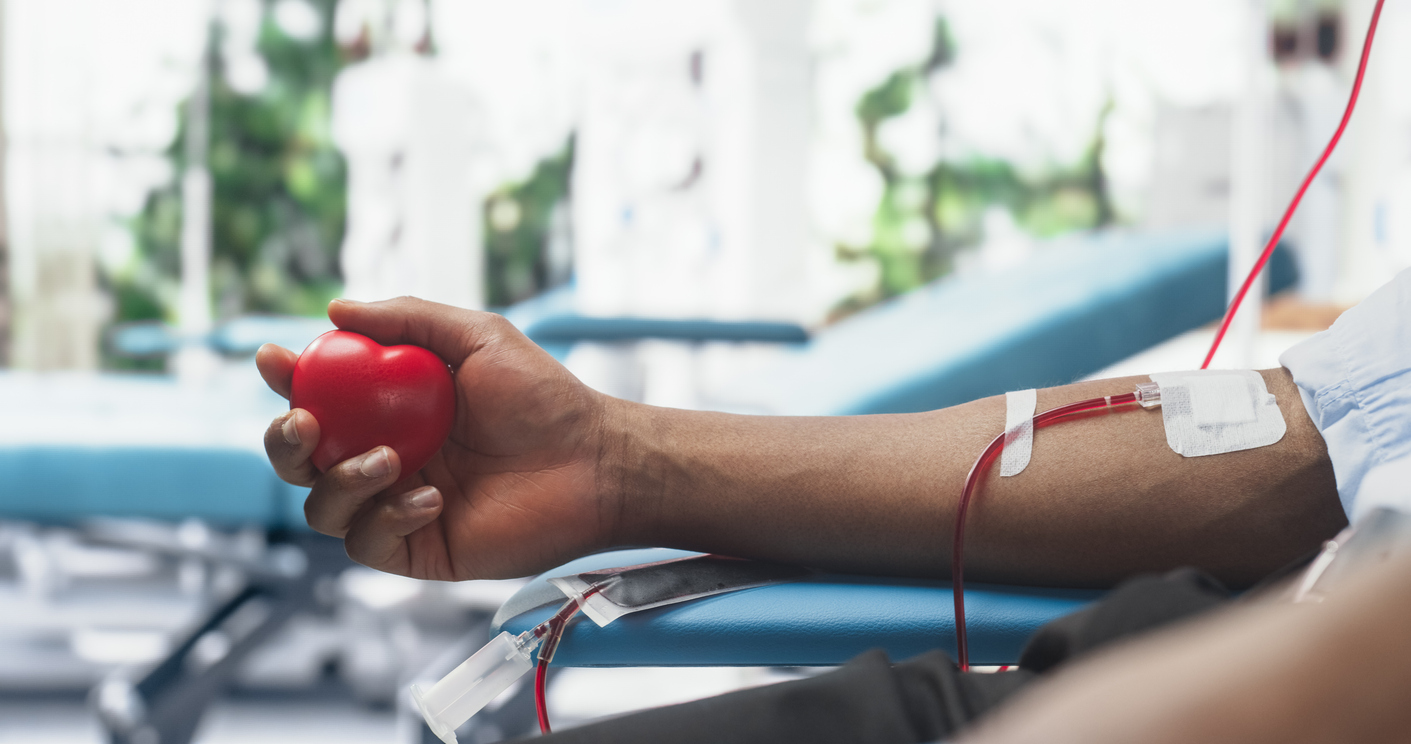Sports medicine and rehabilitation help athletes prepare for the spring season by improving...
Read More
Donating blood is a generous act that helps save lives and support those in need. After you donate, taking care of yourself is vital, and the right snacks can play a role in your recovery.
“When you donate blood, your body temporarily loses fluids, iron and red blood cells,” said Clarissa Ortiz, M.D., a physician at Inspira Medical Group Primary Care. “While your body will naturally replenish these resources over time, the right nutrition can accelerate recovery and help you feel better immediately.” Eating the right foods can also reduce the risk of adverse reactions, like dizziness or fatigue, helping you feel strong and energized.
A well-chosen snack replenishes your energy, helps you avoid light-headedness and supports your body as it restores itself. Here are the best snacks to enjoy after donating blood, along with helpful tips to support your recovery:
Donating blood can lower your iron levels, and replenishing your iron stores is one of the most important steps you can take post-donation. These iron-rich snacks make an excellent choice:
For optimal absorption, combine your iron-rich snack with a source of vitamin C, like orange slices, strawberries or a small glass of juice.
Protein aids in tissue repair and energy restoration. After donating, the following protein-rich snacks can help you bounce back faster:
These snacks are nourishing, versatile and portable, making them an excellent choice for post-donation recovery.
Blood donation reduces your blood volume, making hydration crucial. While post-donation water is essential, these hydrating snacks can also support your recovery:
Watermelon slices: Naturally sweet and refreshing, watermelon is full of water and electrolytes
Celery with cream cheese or peanut butter: Crunchy, hydrating and nutrient-dense
“Hydration is key to avoiding dizziness or fatigue after donating, so keep a bottle of water or an electrolyte drink handy,” said Dr. Ortiz.
It’s common to feel light-headed or tired after donating blood, especially if you haven’t eaten recently. Snacking on these quick-acting carbs can stabilize your blood sugar levels:
Granola bars: Convenient and packed with nutrients for a quick energy boost
Bananas: High in natural sugars and potassium, they are a great option for restoring energy
Keep one of these snacks within reach to refuel quickly, especially if you feel faint.
Vitamin B12 and folate are essential for red blood cell production and overall recovery. Here are a few snacks packed with these vital nutrients:
Spinach wraps or salads: Add lean protein like chicken or tofu to your wrap or salad for a balanced recovery meal
Smoothies made with leafy greens, berries and almond milk: A refreshing, easy-to-digest option
These snacks offer a nutrient boost to support your recovery and keep you feeling great.
For a smooth recovery after donating blood, consider these helpful tips to ensure you stay comfortable and feel your best:
Eat a healthy meal before donating. A balanced meal including iron, protein and carbohydrates will help prepare your body.
Rest if needed. “If you feel faint or overly tired, take a moment to sit down, drink water and have a snack,” said Dr. Ortiz.
By choosing the right snacks and caring for yourself, you can recover quickly and continue to make a life-saving impact.
Ready to make a life-saving impact? Sign up to donate blood at Inspira locations and help save lives in your community.
Vineland Blood Donation Locations
Mullica Hill Blood Donation Locations

Sports medicine and rehabilitation help athletes prepare for the spring season by improving...
Read More
Specialty doctors provide expert care for specific health concerns, ranging from ear, nose and...
Read More
Preventive health practices like regular exercise, balanced nutrition, routine screenings and stress...
Read More
The material set forth in this site in no way seeks to diagnose or treat illness or to serve as a substitute for professional medical care. Please speak with your health care provider if you have a health concern or if you are considering adopting any exercise program or dietary guidelines. For permission to reprint any portion of this website or to be removed from a notification list, please contact us at (856) 537-6772